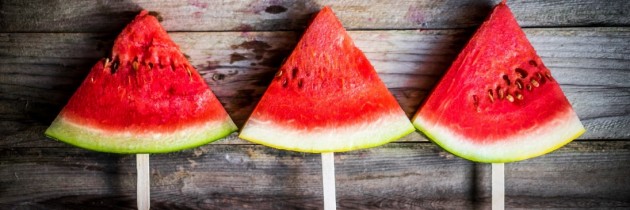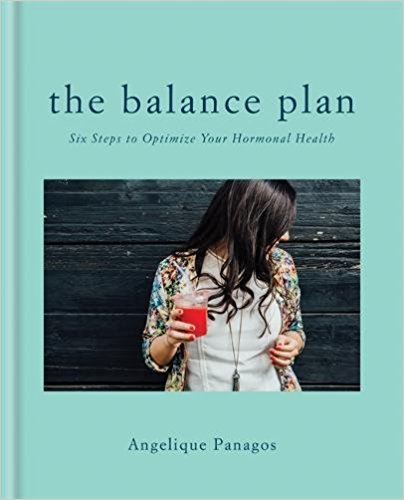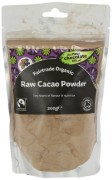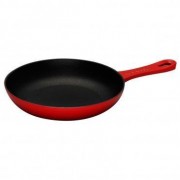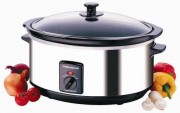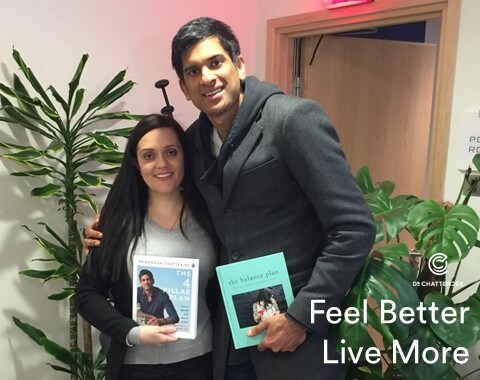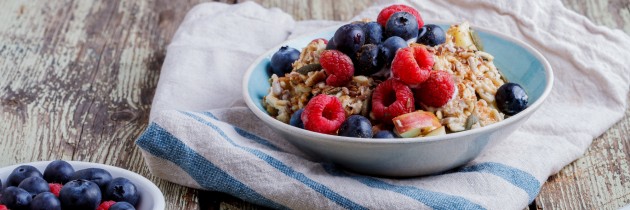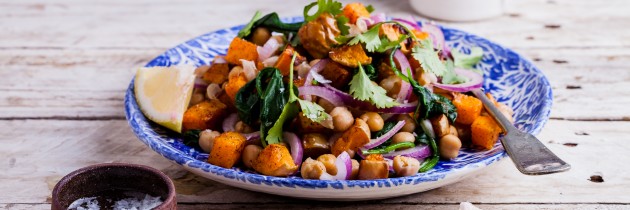The right carb guide
We all have friends who are on low- carbohydrate (carb) diets, totally fearing eating anything they think resembles carbohydrates. Perhaps you’ve been on a low-carb diet yourself or are thinking about cutting out this food group to lose weight for a wedding, a holiday or to get into those skinny jeans.
Sadly, over the years, carbs have become an almost dirty word to those looking to shape up or lose weight. Due to the popularity of low-carb diets, some carb-heavy foods have been unfairly blacklisted and we’re bombarded with so much misleading advice. Some suggest they’ll cause weight gain others say are only OK to eat if we’ve worked out, is it any wonder that we’re starting to fear our carbs?
The whole “carbs are bad” ethos has left many of us feeling confused, and unsure about whether or not we should be eating them. Are carbs really all that bad for us, and should we be ditching them? Well, I am here to set the record straight.
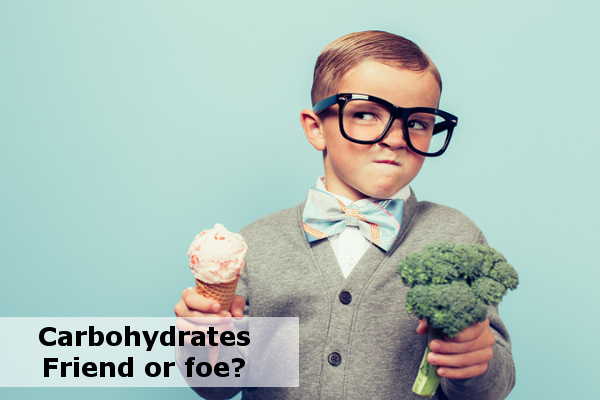
I am about to tell you something that might come as a shock to you. We need carbohydrates; they are an important part of our daily diet!
When we think about carbs we typically think of sweets doughnuts, bread, bagels, and pasta. Right? Well, actually that is not totally correct. You see, “carbohydrates” incorporates a huge variety of foods. A pizza, a bowl of pasta, sweet potato and broccoli all fall into the “carbs” category, but they are completely different foods.
In actual fact, almost all plant foods fall into the “carbs” category. They are really super foods that are packed full of nutrients, fibre, and the all-important phytochemicals. They are what I refer to as ‘the right carbs’, they are low-glycemic and they don’t spike your blood sugar or insulin. Do have a read of ‘Finding blood sugar balance’ as a reminder of why we want to keep everything in balance.
Before I get back on my soapbox (you all know how I love my soapbox!), I would like to try and arm you all with a little bit of knowledge and good old know-how. So let’s start with this: what exactly are carbs, and why do we need them?
What are carbs?
Stripping it right down to basics, carbohydrates are one of the three macronutrients we’ll find in food – the other two are protein and fat. All three are nutrients our body needs and uses to thrive.
To put them into categories there are refined or simple carbs, often called “bad carbs”, and then you’ve got your complex carbs, the ones many know as “good carbs”. Fortunately, it’s easy to separate the good from the bad so let’s explore these further.
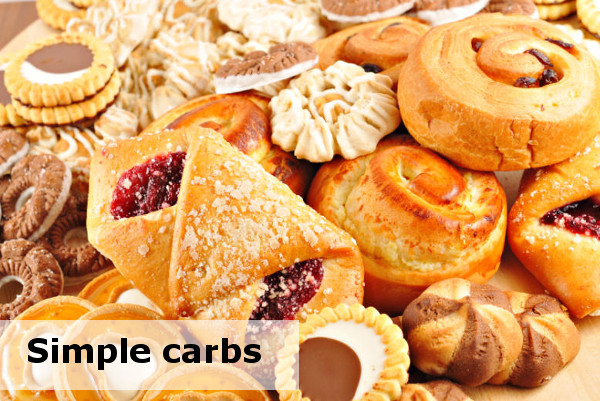
Think of anything white, sweet and fluffy! Simple carbs contain just one or two sugars, and are broken down quickly by the body to be used as energy and can cause a major blood sugar spike, the excess energy is stored as glycogen and anything left over will be converted to fat for later use (queue the dreaded muffin top).
These are heavily refined foods, such a white bread, white rice, white pasta, pizza, croissants cakes and pastries, to name a few, which have been stripped of their nutrients and fibre. The problem is because simple carbs are easy to digest, eating too many can lead to huge spikes in our blood sugar, which isn’t so great for our waistlines or our health.
Luckily we can minimise the health risk of bad carbs by eating fewer refined and processed carbohydrates and I would strongly recommend that you that you do just that.
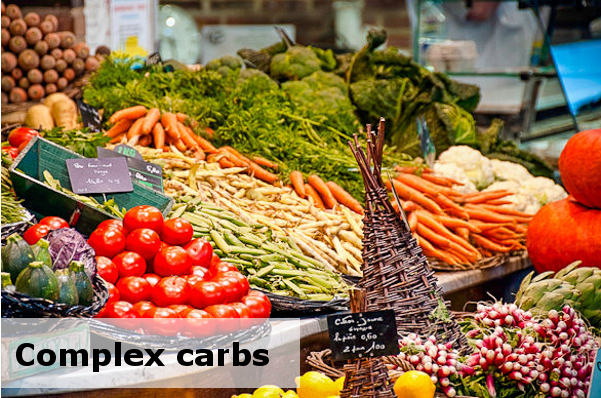
These are brown and fibrous and are what we call a slow release carbohydrate.
These include delicious foods like brown rice, rye, quinoa, beans and lentils. Added bonus, our beloved veggies are an excellent example of a complex carb! And as you know I am always going on about eating that rainbow.
These precious complex carbs are energy-boosting and they contain three or more sugars (polysaccharides) and take longer for our bodies to break down, so they give us that slow-release energy – the perfect fuel for our modern-day lives!
Whole grains and other complex carbs are also higher in fibre, which keeps our digestive system healthy, gets you pooping and our tummies feel fuller for longer and in turn it helps with hormone balance.
The added bonus? Since they’ve not been refined, they also keep all of their nutrients, so our bodies reap the rewards of all those natural antioxidants, B vitamins and other nutrients.
In fact, complex carbs can actually help us to maintain a healthy body weight, reduce “LDL” (the so-called “bad” cholesterol) and also cut our risk of type 2 diabetes and certain cancers, too.
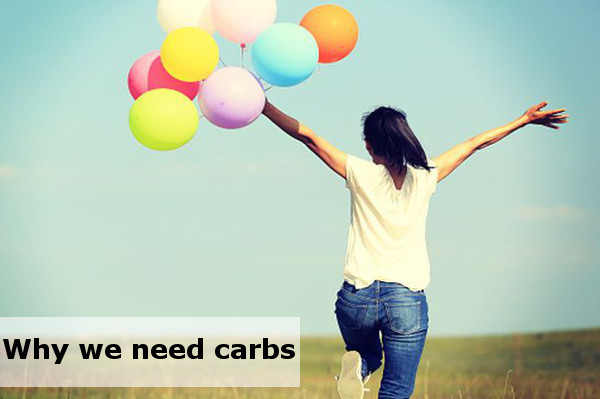
‘Carbs are bad’ is one myth that I’m keen to debunk because the key to a healthy, happy body is eating a balanced diet (and that means no ditching of entire food groups) and getting moving!
You see, apart from simply tasting delicious, the great thing about complex carbs is how our body uses them. In fact, it doesn’t just use them, it needs them. From giving us the energy to laugh, run, swim, walk and dance around the room, carbs are an essential fuel for life.
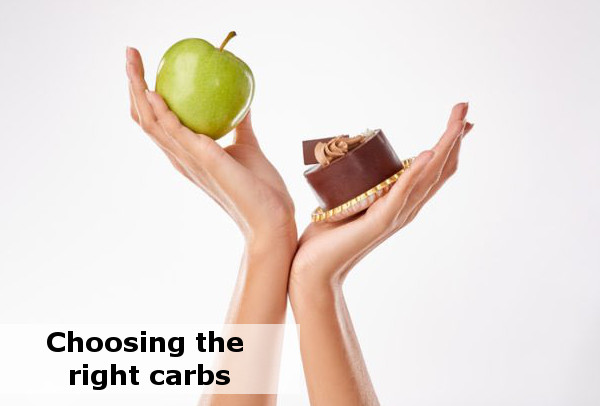
The right carbs come from plant foods and provide us with unique benefits like those we mentioned before (high levels of vitamins and minerals, fibre, and plant compounds with called phytochemicals). Phytochemicals are therapeutic molecules such as glucosinolates in broccoli, anthocyanidins in berries, cherries and aubergine and curcumin in turmeric.
Having enough of the right carbs which are high in fibre helps reduce the effect of their sugar content by reducing the blood sugar spike and consequent blood sugar crash which leaves you searching for a chocolate or other quick sugar fixes. That’s the difference between eating a punnet of blueberries and putting 4 teaspoons of sugar in your tea.
The fibre, in turn, feeds the friendly flora in your gut (microbiome) supporting a healthy digestive tract. When you focus on these low-glycaemic plant foods, your weight starts to stabilise, you feel better without the sugar crashes and you reduce your risk for numerous diseases.
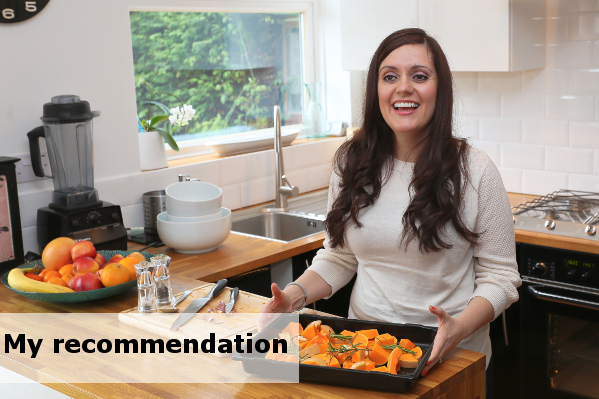
This is not a license to eat copious amounts of brown rice and pasta, this is an opportunity to feed our body with the right nutrients it needs to achieve optimal energy.
Eat freely from the right carbs and fill your plate with broccoli, asparagus, spinach, chard, kale, cabbage, bok choy, and more. These are truly an unlimited food!
Eat a wide variety of fibre and phytonutrient-rich legumes and pulses like lentils, broad beans, chickpeas, split peas, edamame , adzuki, and other beans.
Only eat whole grains like brown rice, oats, quinoa and brown pasta but still have these along with your more starchy vegetables in moderation and I like to have mine at breakfast and lunch.
Enjoy one to two pieces of low-glycaemic fruit a day.
Avoid highly processed, factory-manufactured refined simple carbohydrates.
If you want to find out more or get an idea of when you should be eating your carbs (clue: it varies from person to person and depends on your lifestyle), then come and see me of a nutrition consultation, I am always happy to help.
Now, let’s go load our plates…
Nourishing well wishes,
Angelique
Consult your doctor or health care practitioner for any health problems, and before embarking on any new health regimes, using any supplements or before making any changes in prescribed medications or food programmes.

